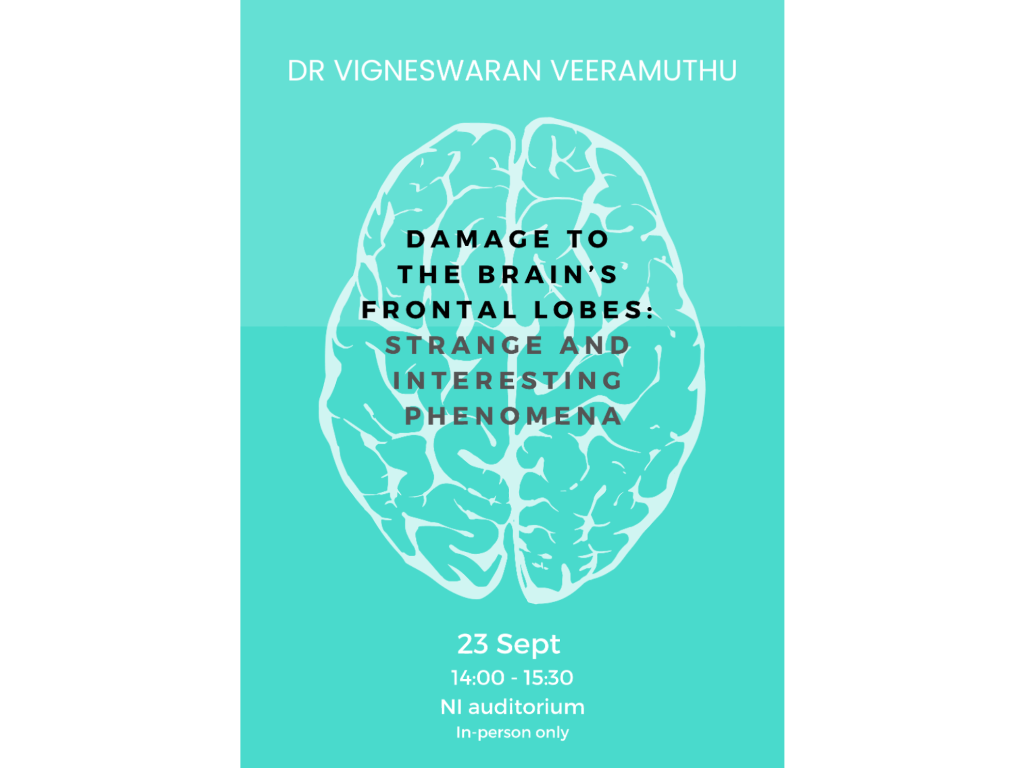Talk: Damage to the frontal lobes - strange and interesting phenomena


The frontal lobe plays a central role in a myriad of cognitive and functional processes, serving as a hub for higher-order thinking, decision-making, and personality regulation. Damage to this region, whether occurring on one side or both, can lead to profound changes in a person's cognitive abilities, personality, and social behaviour. This introductory lecture will explore briefly the bilateral anatomy of the frontal lobes, highlighting their key functions. We will also delve into the unique and often perplexing effects of frontal lobe damage, including how such injuries can result in significant shifts in temperament, social conduct, and overall cognitive function. Additionally, we'll examine some of the more unusual phenomena observed in cases of unilateral and bilateral frontal lobe damage, offering a window into the complexity and adaptability of the human brain.
Dr Vigneswaran Veeramuthu currently serves as a resident Consultant Clinical Neuropsychologist (Adult and Pediatrics) at Thomson Hospital Kota Damansara, Malaysia. He completed his doctoral training with a PhD in Clinical Neuropsychology (Neurosurgery) from University of Malaya in 2016, a clinical fellowship at Hawaii Pacific Neuroscience Institute (2013), and recently a clinical observation at the Department of Neurosurgery, University of California San Francisco (2023). His clinical and research interest lies predominantly in the area of neuropsychological evaluation, presurgical planning, intraoperative brain mapping, advance neuroimaging and rehabilitative interventions in neurological surgery (brain tumors and epilepsy predominantly) and disorders of consciousness.